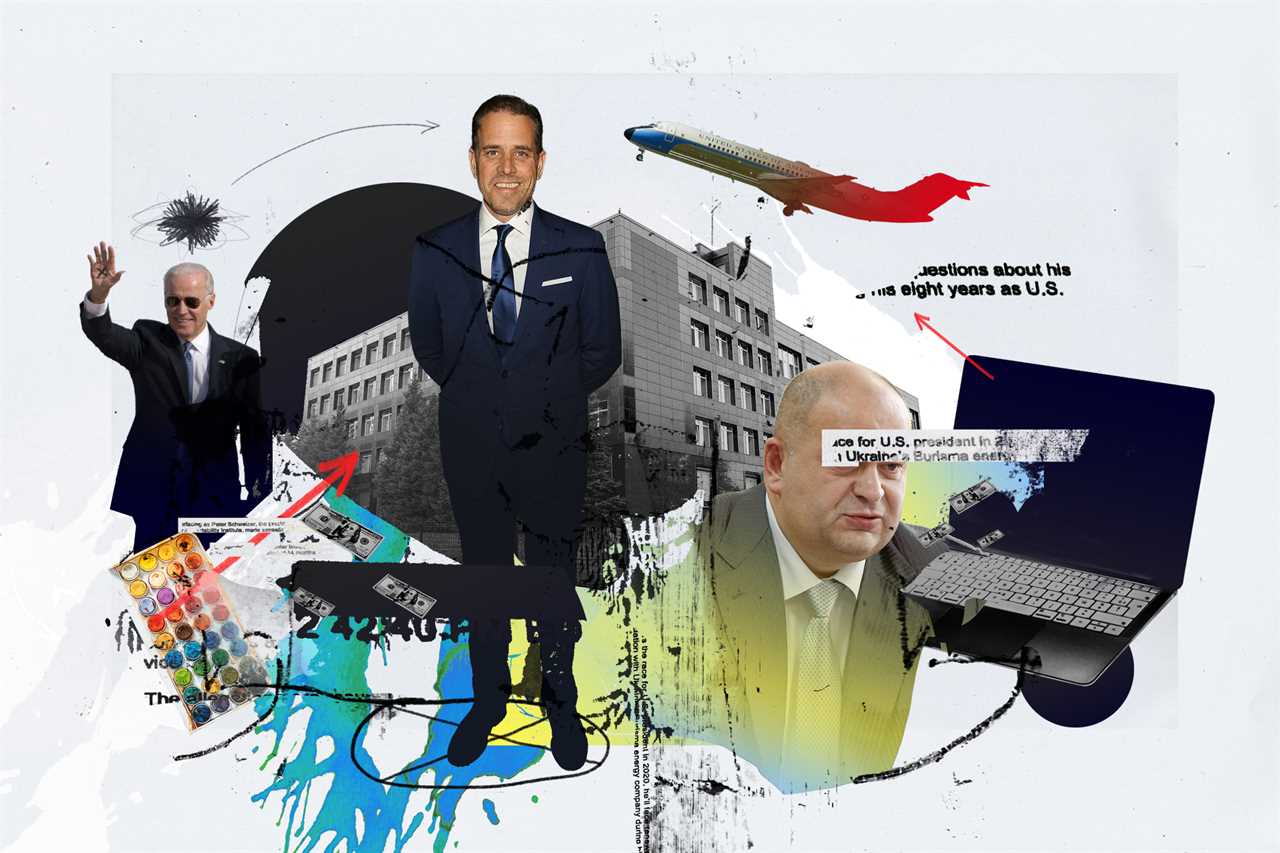
During the presidential campaign, liberals had plenty of reason to tune out the Hunter Biden story.
For one, it was being pushed by Donald Trump, whose administration was awash in ethics scandals of its own, and who failed to make a convincing case that Hunter Biden’s work for a Ukrainian energy company influenced his father’s actions as vice president. And it was unclear what to make of the alleged leak of material from Hunter Biden’s laptop, especially after social media companies moved to restrict access to the story and a bevy of former U.S. intelligence officials dismissed it as likely “Russian disinformation.”
Following the election, it seemed the whole Hunter Biden saga might fade away amid Trump’s efforts to overturn the result, the storming of the Capitol and an ongoing pandemic. Instead, he has remained in the headlines.
Most recently, news broke this summer that Hunter Biden would begin selling paintings, with initial prices as high as $500,000. It was an extraordinary sum for a debut artist, and immediately invited concerns that people who wanted to ingratiate themselves with the president would overpay for his son’s art.
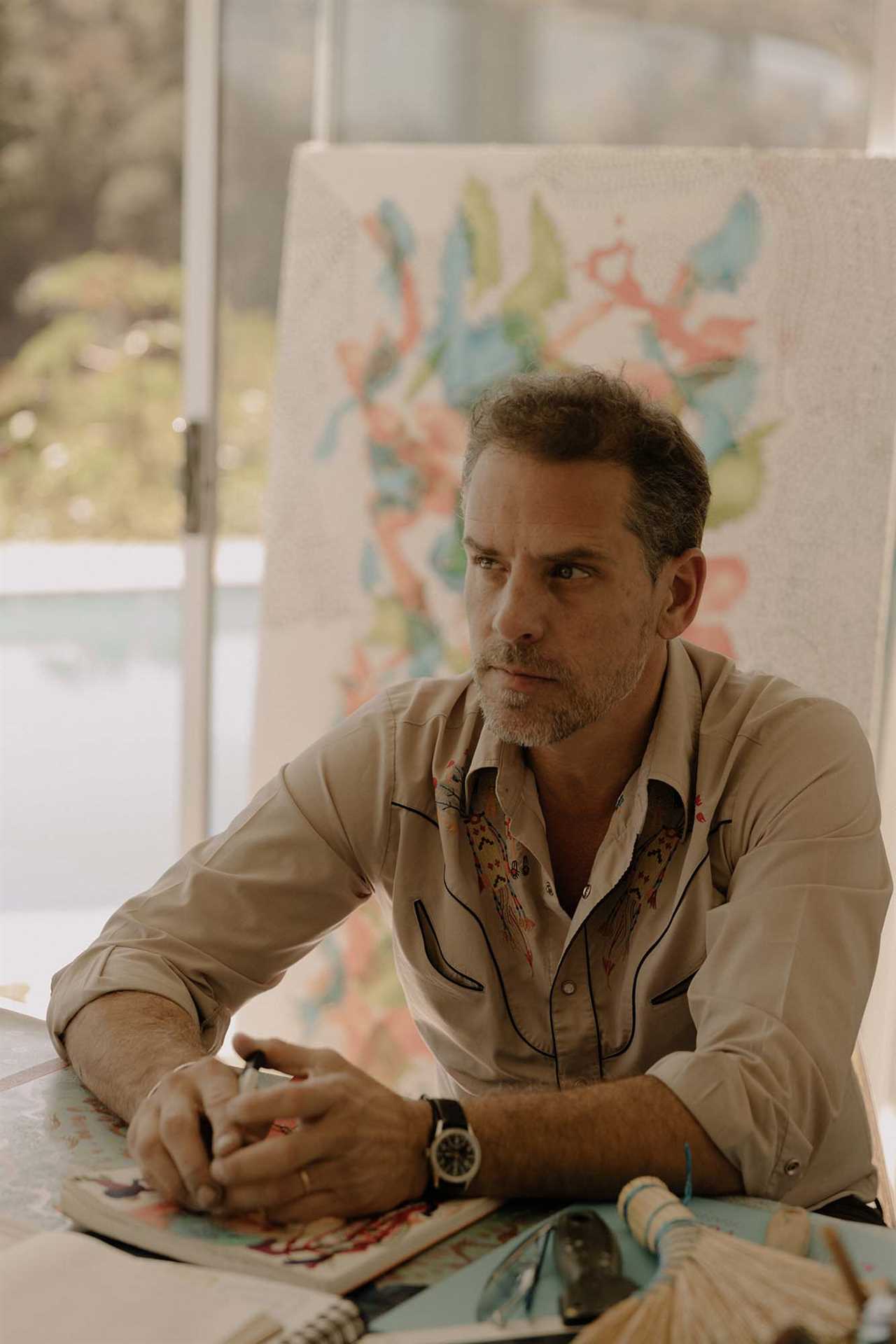
The White House responded that the identities of the buyers would be kept secret, both from the painter and the public, while leaving it to the art dealer to weed out any suspicious patrons.
Many ethics experts expressed sharp disapproval of the arrangement, including Barack Obama’s former ethics czar, Walter Shaub, who described the sums of money involved as “absolutely appalling.”
So far, right-leaning outlets that devoted less attention to the ethical issues raised by the activities of Trump’s relatives have had a field day with the Hunter Biden story. Interest in his activities, meanwhile, has been relatively muted on the left.
That may be changing. Along with new evidence that at least some of the alleged laptop material is genuine — as well as other emerging evidence about the deals family members have sought or received from people with an interest in influencing Biden — the bipartisan outcry over the painting venture suggests that the Hunter Biden issue is not going away, and that liberals may increasingly tune in.
After all, concerns about money influencing politics have traditionally animated liberals more than conservatives. In fact, one of the most scathing critiques of Biden came during the Democratic primary, from the progressive reformer and Bernie Sanders surrogate Zephyr Teachout, who authored an op-ed for the Guardian accusing Biden of having a “corruption problem” (the column prompted Sanders to apologize to his former Senate colleague).
And with his father in office, Hunter Biden’s activities no longer bear on an electoral choice between Biden and Trump. Instead, they threaten to complicate the White House’s efforts to position Biden as a global anti-corruption crusader, along with its contention that “we have the highest ethical standards of any administration in history.”
It is impossible for the public to know everything that goes on inside a government office, let alone inside a family, especially one as tight knit as the Bidens. Ethics experts generally maintain that officials should avoid even the appearance of a conflict of interest, a standard that becomes especially stringent at the highest levels of government.
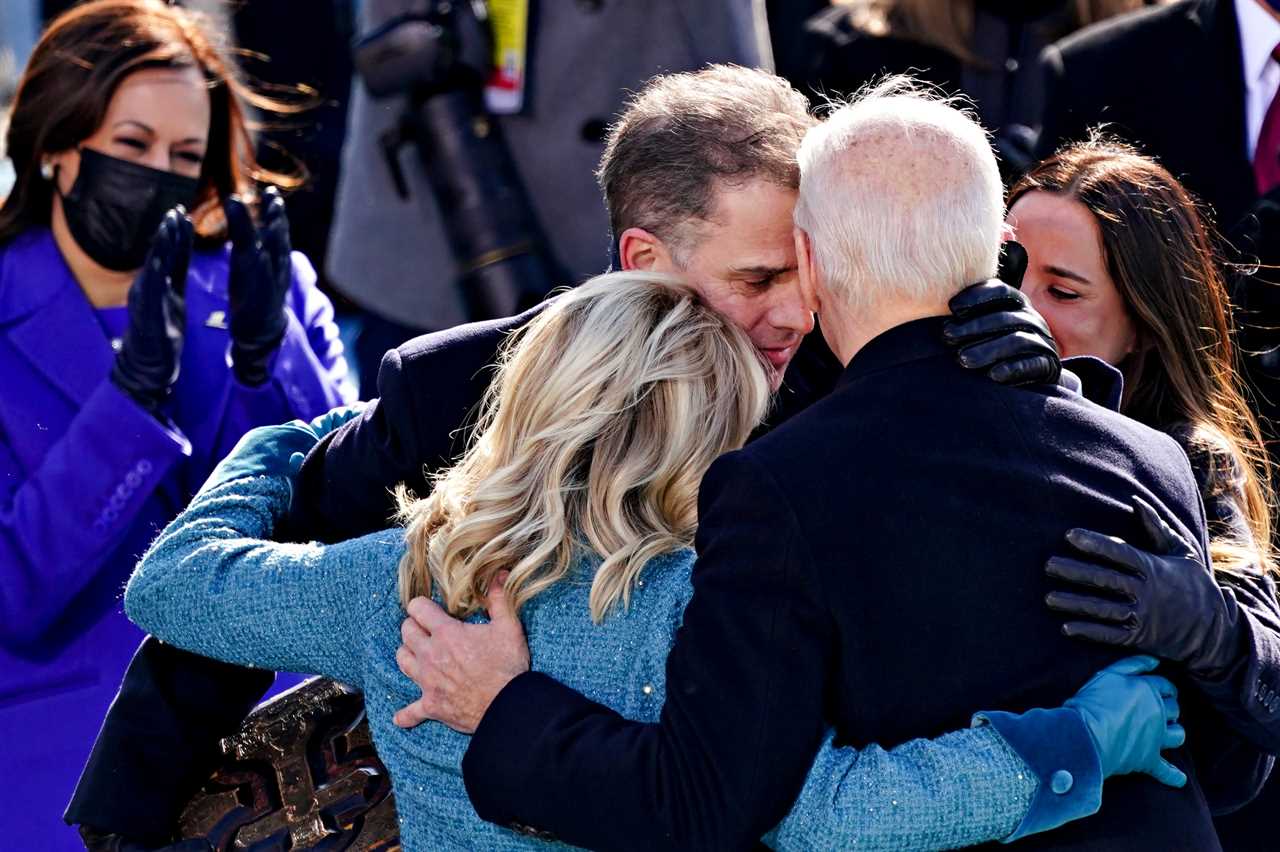
Yet there is evidence that the Biden family’s activities over the years have regularly presented such an appearance. Far from ethical concerns about Hunter Biden being debunked, the case for close scrutiny only grows stronger when viewed in the full context of the family’s story and in light of events that have unfolded since Election Day.
Biden’s relatives have denied allegations of wrongdoing, and none have been accused of criminal misdeeds related to their business dealings. The president has said that he does not discuss his relatives’ dealings with them, and no proof has emerged that he has taken official actions on account of their business interests.
But in recent decades, members of the First Family, including Hunter Biden, have repeatedly entered into financial relationships with people who have an interest in influencing their powerful relative — including taking loans from lobbyists; seeking business from labor groups; taking a job with a bank that relied on Biden’s support to pass a personal bankruptcy law loathed by progressives; and, of course, taking a seat on the board of a Ukrainian energy company, Burisma, that faced allegations of corruption, even as Biden headed up U.S. anti-corruption efforts in Ukraine.
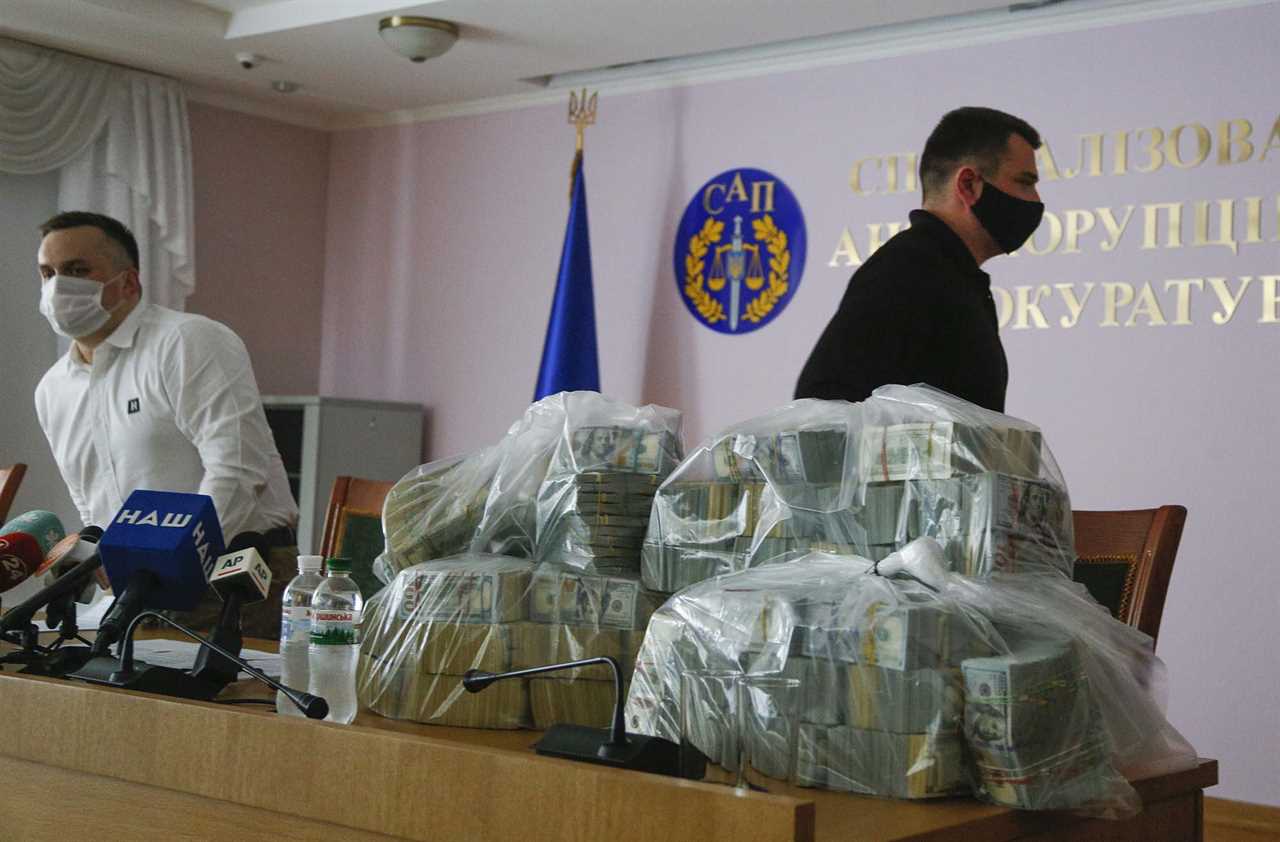
Several former business contacts have also accused Biden relatives of explicitly invoking their political clout to advance their business interests, charges that members of the family have denied. And since 2007, several of their business associates have been convicted of federal fraud or corruption charges, though no members of the First Family have been implicated in those crimes.
Meanwhile, since the election, Hunter Biden’s business dealings, along with those of other relatives, have remained in the news.
In December, Hunter Biden acknowledged the existence of a federal criminal investigation of his tax affairs, which has focused on his dealings overseas, including in China. POLITICO also reported on the FBI’s interest in one of Biden’s brothers, James Biden, as part of an ongoing investigation of a hospital operator to which he was tied. That investigation, which remained active as of late last year, focused in part on alleged representations James Biden made in investment pitches about the value of his last name and influence, according to a former official with firsthand knowledge of it.
On his first day in office, Biden named a law partner of his son’s defense attorney as interim head of the Justice Department’s criminal division, an arrangement that risked running afoul of the department’s conflict-of-interest rules. On the same day, Biden’s brother Frank highlighted his relationship to the president in a newspaper ad for a Florida law firm. Since then, Biden’s other brother, James, bowed out of an energy venture in the U.K. following a White House ethics review, according to the Financial Times.
Meanwhile, reporting I’ve done for my book, The Bidens: Inside the First Family’s 50-Year Rise to Power, as well as information that has emerged publicly, supports the conclusion that a purported leak of Hunter Biden’s computer files contains genuine material. Hunter himself has told CBS News that the laptop “certainly” could be his.
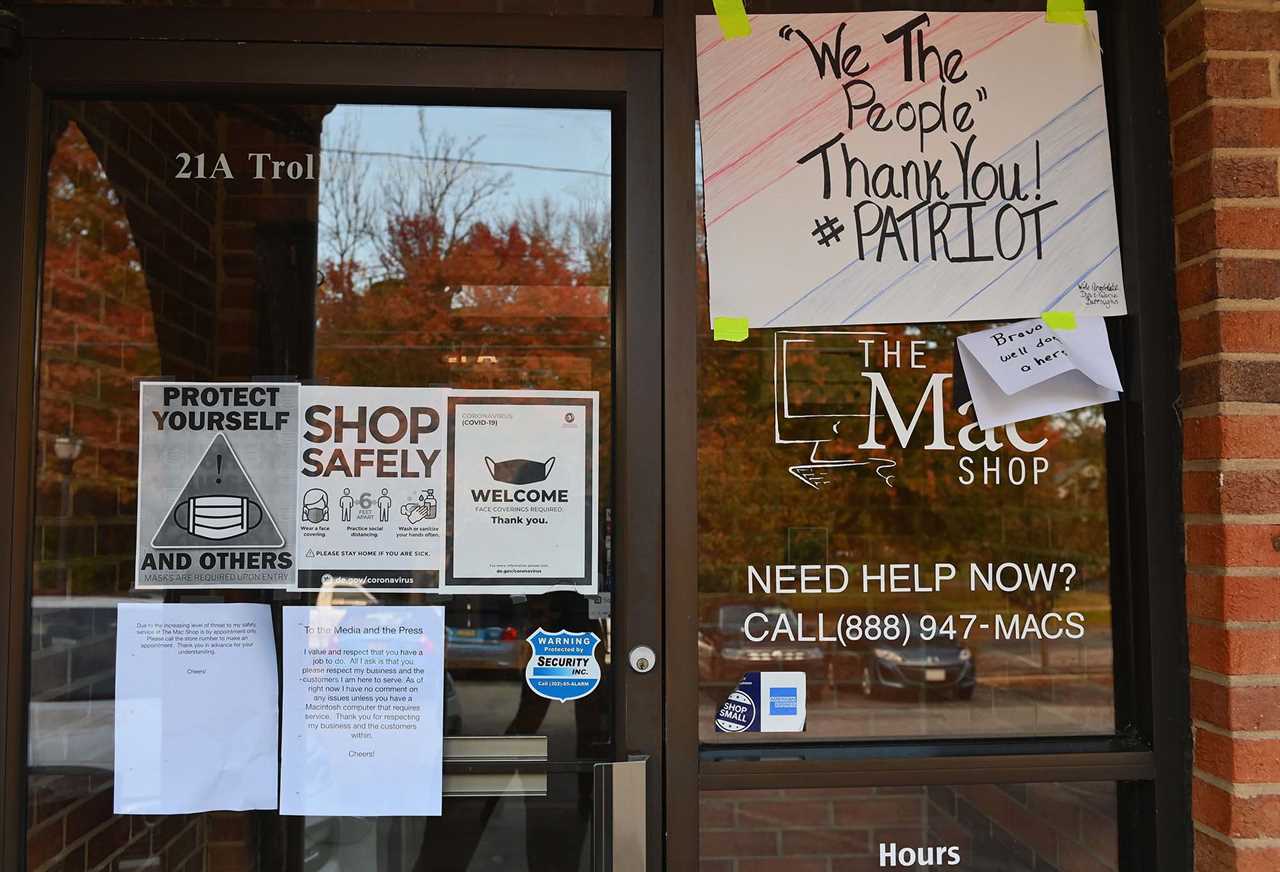
There may be fake material mixed in with the real, and the significance even of the material for which there is corroboration remains unclear.
But the case that Hunter Biden arranged an April 2015 encounter between his father and a Burisma representative in Washington has only gotten stronger since that allegation was first aired last October, as has the case that Hunter Biden discussed giving the future president a piece of a planned venture with a Chinese energy mogul. The mogul has been linked by the Financial Times to China’s military intelligence community and has been detained in China, where prosecutors have reportedly alleged that he bribed a Communist Party official.
Rather than air out these episodes fully, Biden’s camp responded with carefully worded statements saying that its “official schedules” showed no meeting with the Burisma representative and that Biden has never discussed going into business with his relatives. For its part, the Justice Department has declined to address whether Nicholas McQuaid, the lawyer tapped by Biden as interim head of its criminal division, recused himself from Hunter Biden’s case or received a waiver to participate in it, as department rules would require, during his time atop the criminal division. (In July, the Senate confirmed a permanent head of the criminal division.)
The White House declined to comment. The evidence suggests that questions about the activities of Hunter Biden, and other members of the first family, are not going away. Left unaddressed, they threaten to complicate Biden’s declared intention to restore public confidence in the executive branch, even — perhaps especially — in the eyes of Trump’s harshest critics.
“Even though this administration isn’t corrupt on the same level as the previous administration, which seemed to embrace the corruption,” said Kathleen Clark, a law professor and government ethics expert at Washington University in St. Louis, “the public has reason to be concerned.”
Most recently, those concerns have centered around Hunter Biden’s art.
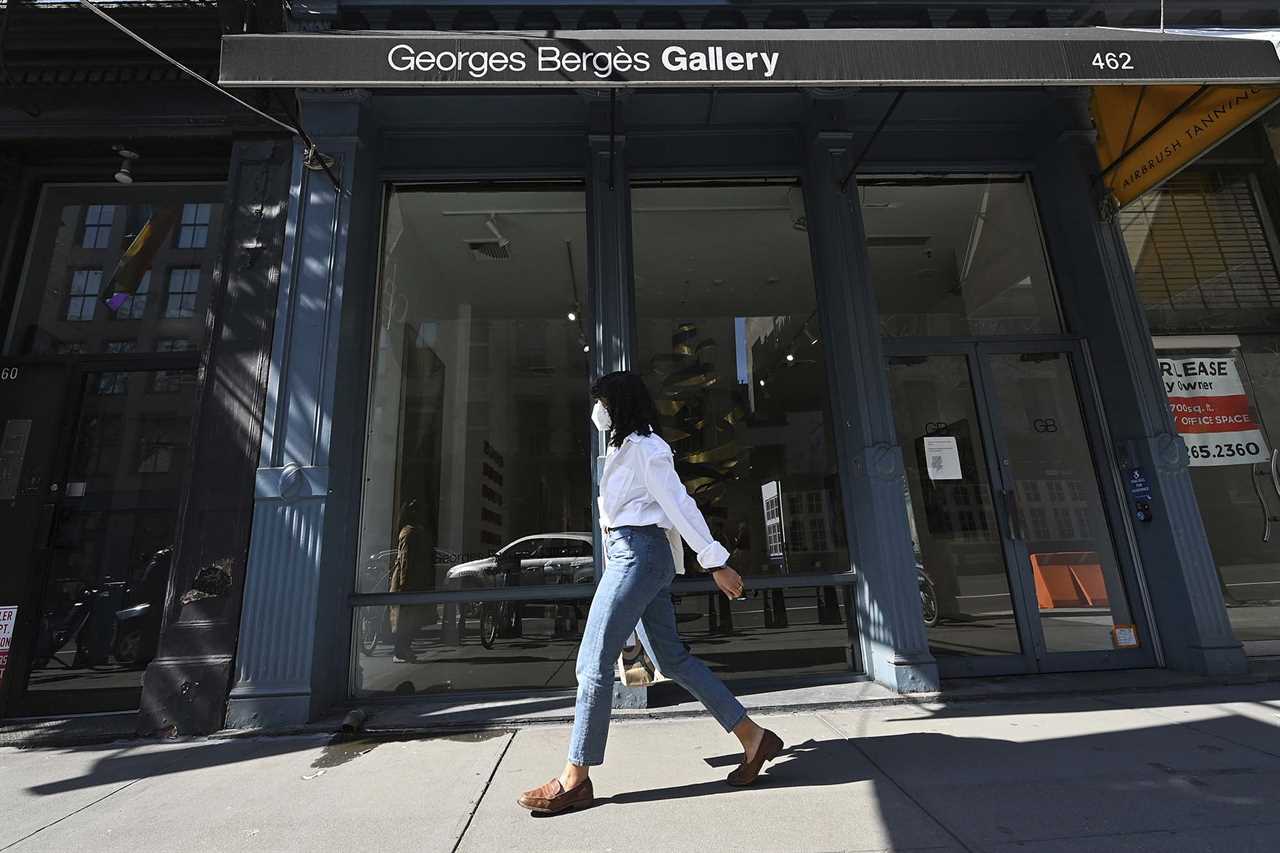
“Little will guard against the possibility that the buyers may be interested in something beyond Hunter’s paintings,” journalist Casey Michel wrote of the arrangement in the Atlantic, “and that they may be willing to pay however much they need for access to the man whose father sits in the Oval Office.”
Clark, meanwhile, described the plan to keep the identities of the buyers secret as “whacko.”
“It leaves, frankly, the Biden administration wide open to concerns that people are going to buy influence by buying Hunter Biden’s paintings at what might be inflated prices,” she said. “The idea of keeping the identity of the buyers secret or the price secret is no way to protect the public interest or ensure public confidence that there isn’t corruption going on. It’s bizarre that that’s the solution that they came upon.”
Fresh concerns about the arrangement arose in late July when CBS News reported that Hunter Biden would, in fact, meet face to face with people interested in purchasing his art, thereby undermining the anonymity of the process.
That development left Jessica Tillipman, a dean at George Washington University’s law school and an anti-corruption expert, incredulous. “Now, he’s privately meeting with potential buyers and quote unquote he’s never going to know [if they then made a purchase] because he’s just outsourced the ethics function to this art dealer, and we’re supposed to just rely on that?” she said.
Tillipman described the White House handling of the matter as “botched.”
(White House spokesperson Jen Psaki has said that conversations between Hunter Biden and potential buyers will not be “related to the selling of art,” and has distanced the White House from the arrangement, saying it was drawn up by Hunter Biden’s representatives.)
The venture into painting is not an isolated incident, but part of a larger pattern in which the finances of Hunter and other Biden relatives have raised ethics questions or overlapped with the president’s political alliances and public duties. Among the alleged conflicts of interest are:
• Hunter Biden’s work for MBNA, a Delaware-based bank whose employees were at one time among his father’s top campaign donors. After leaving the bank and becoming a federal lobbyist, Hunter Biden received outside consulting fees from the bank.
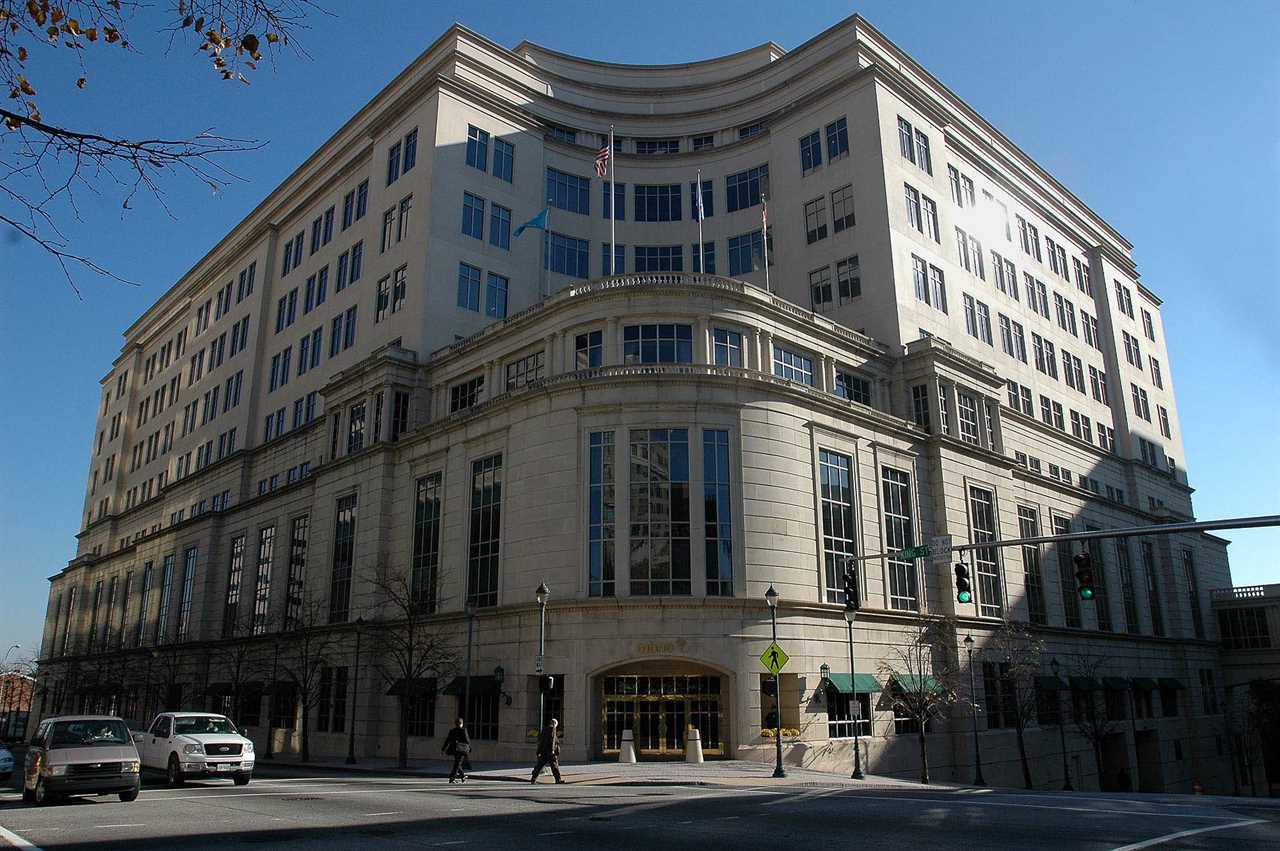
While MBNA was paying Hunter Biden, Joe Biden championed a bill sought by the bank that made it more difficult for people to shed credit card debt through personal bankruptcy. Progressives, especially then-law professor Elizabeth Warren, opposed the bill, but Biden was able to help secure its 2005 passage.
A spokesperson told CBS News in 2008 that Hunter Biden was paid to consult on issues related to e-commerce and online privacy, and that his work did not relate to the bankruptcy bill. The spokesperson told the New York Times that Joe Biden never performed any legislative favors for the bank.
• Hunter and James Biden’s receipt of more than a million dollars worth of loans from WashingtonFirst Bank, which came in 2006 when the two Biden relatives were looking for means to repay a debt related to their acquisition of a troubled hedge fund firm, Paradigm Global Advisors. The bank was co-founded by a federal lobbyist who had been Hunter Biden’s lobbying partner and maintained longstanding ties to Joe Biden.
The loans were later repaid, according to a former executive at the bank.
• James Biden’s sale of land in the Virgin Islands to Scott Green, a former Biden Senate staffer working as a federal lobbyist and government contractor. James Biden also received a loan from the lobbyist, who later indicated it had been repaid. Green and some of his clients benefited from Joe Biden’s actions in the Senate and the Obama administration. That included Biden’s work securing funding for the non-profit Drug Abuse Resistance Education program and for a Department of Homeland Security program meant to improve communications systems for first responders.
• James Biden’s receipt of an executive role at construction firm HillStone International during his brother’s vice presidency, despite a lack of previous experience in the industry. Following James Biden’s arrival, the firm and its parent company landed contracts worth an estimated $1.5 billion to build housing in Iraq. The deal came via a South Korean firm that had received a contract from Iraq’s U.S.-supported government. At the time, Joe Biden oversaw the Obama administration’s Iraq policy.
The company has said that James Biden played no role in helping it land the contract, which was ultimately canceled.
• Hunter Biden’s role on Burisma’s board in 2014, despite a lack of prior experience in the energy sector, which came while then-vice president Joe Biden oversaw U.S. policy in Ukraine.
Burisma was awarded valuable licenses for natural gas production while its founder, Mykola Zlochevsky, served as Ukraine’s minister of ecology and natural resources under the Russia-aligned administration of Viktor Yanukovych. Both Zlochevsky and Burisma were under suspicion of corruption while Hunter Biden sat on the board.
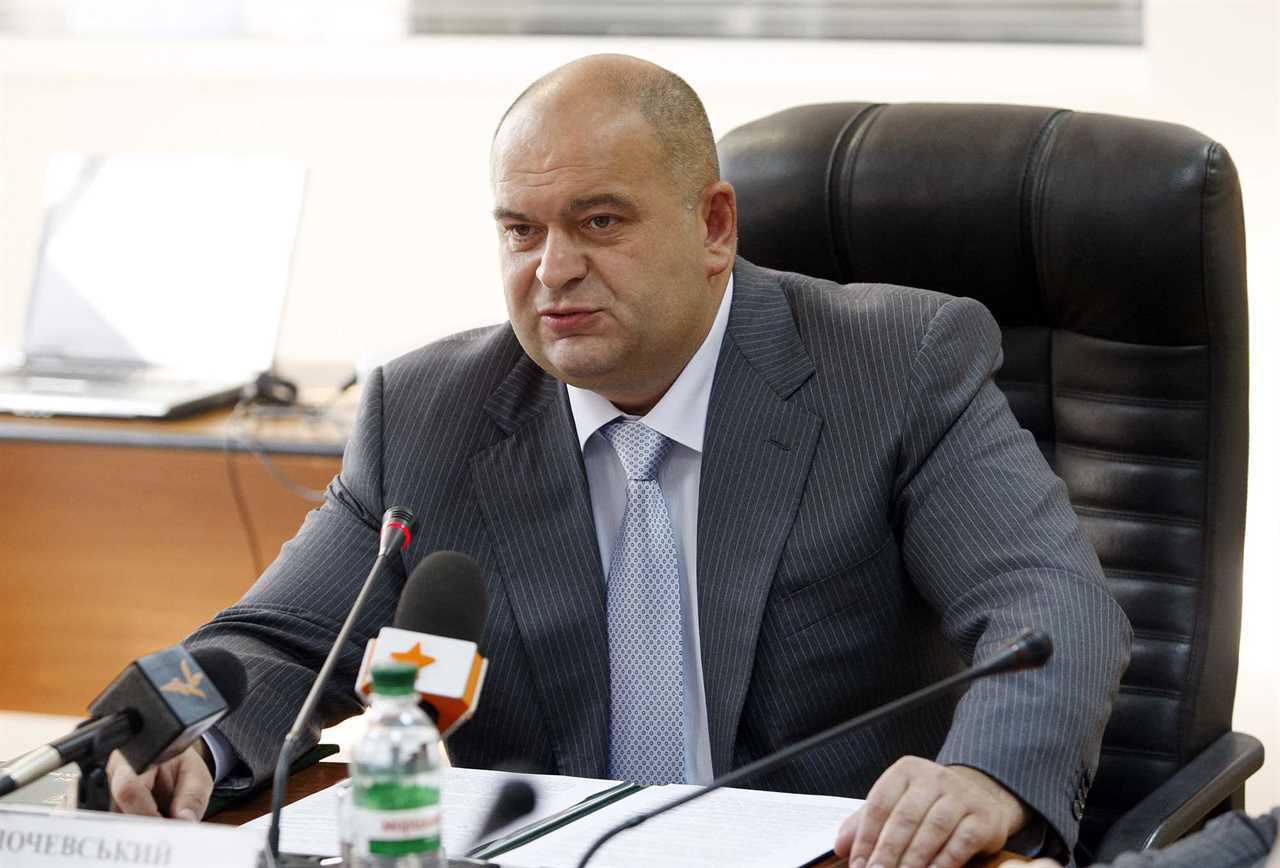
While serving as Obama’s ambassador to Ukraine, Geoffrey Pyatt, a career State Department official, singled out Zlochevsky in public remarks about corruption, saying millions of dollars of the mogul’s “illicit assets” rightfully “belonged to the Ukrainian people.”
Another career State Department official, George Kent, has described Zlochevsky as an “odious oligarch.” He testified that a top Ukrainian official told him of a $7 million bribe Zlochevsky allegedly paid to other Ukrainian officials in 2014 to end a corruption inquiry, according to a report by Senate Republicans.
But Kent testified to congressional investigators during the Democratic-led 2019 impeachment inquiry that he was rebuffed by the vice president’s office when he tried to raise concerns that Hunter Biden’s hiring could be seen as influence-buying.
Joe Biden has said he did not discuss Hunter Biden’s overseas business dealings with him. Hunter Biden has said that his last name likely played a role in his hiring at Burisma and that taking the position showed “poor judgment,” while maintaining he did not engage in wrongdoing. In his memoir, he praised Zlochevsky, describing the businessman as an “energy wonk” and “a listener” who “doesn’t suffer fools lightly.”
Episodes such as these complicate Biden’s efforts to position himself as an anti-corruption crusader. In an essay last year for Foreign Affairs, he pledged to “take steps to tackle the self-dealing, conflicts of interest, dark money, and rank corruption that are serving narrow, private, or foreign agendas and undermining our democracy.” In the essay, Biden also promised to hold during his first year in office a “global Summit for Democracy,” at which he would secure anti-corruption commitments from countries around the world.
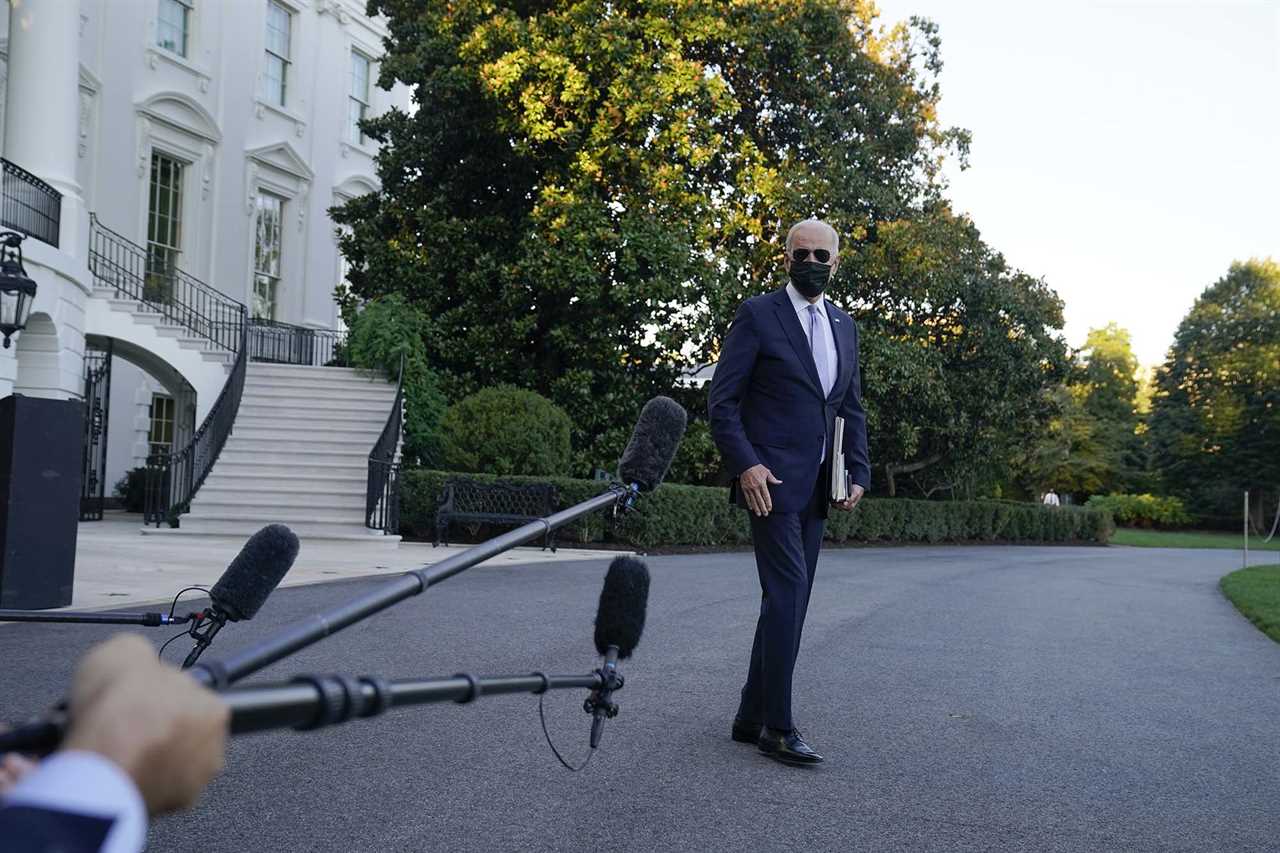
Biden has instituted strict ethics rules for executive branch personnel, a move praised by watchdog groups, even as some have called for him to do more to push for the legislative reforms he promised on the campaign trail.
In June, he issued a presidential “Memorandum on Establishing the Fight Against Corruption as a Core United States National Security Interest,” which ordered the formulation of a sweeping new anti-corruption strategy. The push to make corruption a marquee U.S. issue on the world stage is complicated by the role of money and the influence industry in domestic politics, as well as questions about whether Trump and his relatives improperly profited off of his presidency.
Further complicating such efforts are several cases in which former business contacts have alleged that Hunter or James Biden explicitly invoked their political clout in their business endeavors.
While Joe Biden served as ranking member of the Senate Foreign Relations Committee, Hunter and James Biden acquired the hedge fund firm Paradigm. The former chief compliance officer of the firm has said that James Biden spoke to him of plans to solicit investments from foreign entities who wanted to be supportive of Joe Biden but were legally barred from donating to American political campaigns.
A representative for James Biden has said no such conversation took place, and there is no evidence that Paradigm landed investments from foreign interests.
Three former Paradigm executives have also said that James and Hunter hoped to capitalize on their family’s political alliance with organized labor to land investments from union groups for Paradigm. There is no evidence they succeeded in landing such investments for Paradigm.
A recent foray by James Biden into the health care sector generated similar allegations. In sworn declarations made in 2019, executives for health care firms suing James Biden in Tennessee alleged that as he sought to broker investment deals with their firms, he said his powerful brother could help their businesses grow— including by incorporating one firm’s model of care into his 2020 presidential campaign.
James and Hunter Biden denied the allegations in those suits, which both were settled.
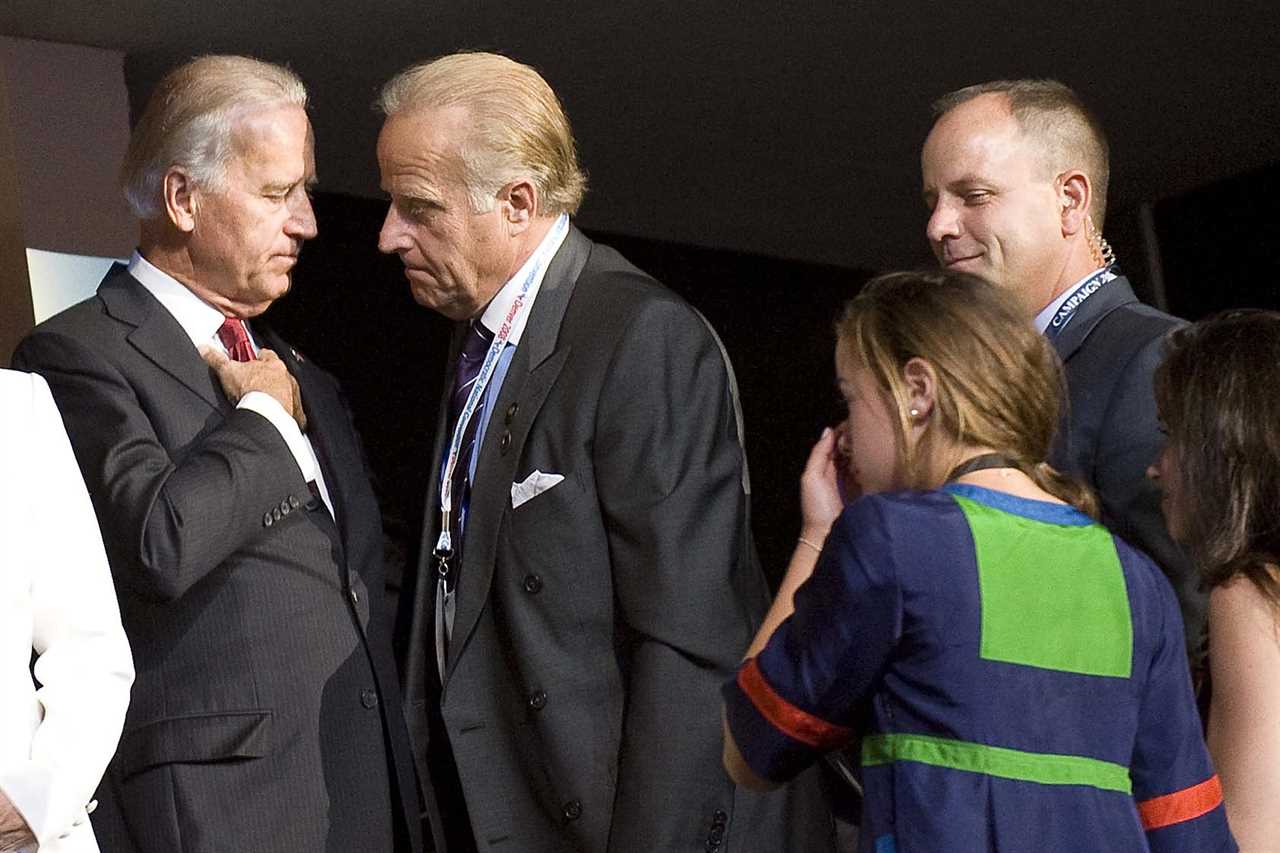
Joe Biden has maintained he does not discuss his relatives’ business dealings with them, but there is evidence that family members do have his ear on policy. For example, in videotaped remarks from 2014, the president’s other brother, Frank Biden, and a federal lobbyist discussed their successful bid to enlist Joe Biden’s help in passing an animal welfare measure through Congress. As part of the effort, the then-vice president advocated for the measure in a meeting with Mitch McConnell, according to the oil company executive who sponsored the lobbying push.
While Biden’s relatives have not been implicated in any of the crimes, several of their business associates have been convicted on federal corruption or fraud charges over the past decade and a half.
Most recently, in late 2020, a federal appeals court reinstated the conviction of Devon Archer — the former Hunter Biden business partner who facilitated his Burisma work — on fraud charges related to a bond issuance scheme.
In 2017, Hunter and James Biden began seriously pursuing a business partnership with Ye Jianming, founder of the Chinese energy company CEFC. Ye enlisted Hunter Biden to provide legal representation to one of his lieutenants, Patrick Ho, who was facing legal problems in the U.S. Ho was subsequently convicted in federal court of bribing government officials in Africa.
(Ye has since dropped from public view amid reports that he has been detained in China, where, according to state broadcaster CCTV, he has been implicated in bribery at the corruption trial of a senior Chinese official.)
Years earlier, around the time of Biden’s second presidential campaign in 2007, James Biden planned to launch an international law and lobbying shop to be called Patterson, Balducci and Biden.
The plan was cut short when his partners, Timothy Balducci and Steve Patterson, were arrested by the FBI, and later convicted, over their unrelated efforts to bribe a Mississippi judge.
Meanwhile, an associate of Patterson’s and Balducci’s, Joey Langston, pleaded guilty in federal court to his own role in a scheme to illicitly influence another judge.
Several years later, Langston and James Biden went into business together, according to corporate records and an investigation by ProPublica.
The pair worked with a company called Trina Health, which offered a controversial diabetes treatment. But the company’s founder, G. Ford Gilbert, pleaded guilty to federal bribery charges in 2019 following a corruption scandal in Alabama.
Neither Langston nor James Biden have responded to questions seeking more detail about the nature of their involvement with Trina.
As the 2020 election kicked into gear, Trump, Giuliani and their associates launched their failed attempt to paint the Bidens as corrupt. They tried to spin a narrative in which Joe Biden’s successful efforts to force the ouster of Ukraine’s top prosecutor were undertaken in order to derail investigations that could be harmful to Burisma or Zlochevsky.
There were key holes in their case: For one thing, U.S. allies, including the World Bank and the European Union, supported the prosecutor’s dismissal. In fact, one complaint from the Western powers was that the prosecutor had not been pursuing Zlochevsky aggressively enough. A bipartisan group of U.S. senators had also been calling for reform of the prosecutor’s office.
In the end, Trump’s efforts backfired. He was caught pressuring Ukraine’s president to investigate the Bidens while his administration withheld military aid from the country. That gambit provoked Trump’s impeachment, rather than Biden’s downfall.
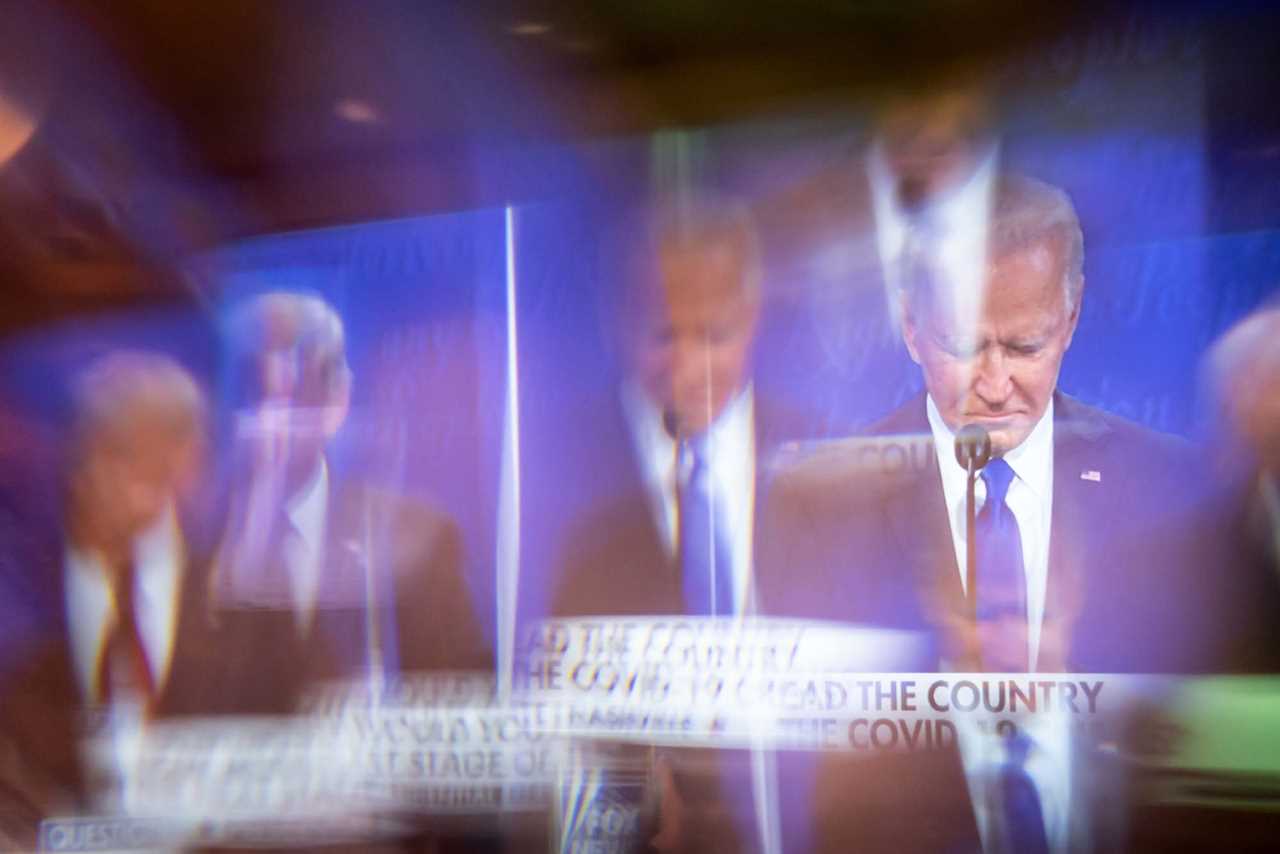
But the Burisma issue reared its head again in the closing weeks of the campaign, when the New York Post reported on a cache of files that had purportedly leaked from Hunter Biden’s laptop. The report included a purported April 2015 email from a Burisma adviser, Vadym Pozharskyi, thanking Hunter Biden for inviting him to Washington and allowing Pozharskyi to meet the then-vice president.
The report was immediately controversial. The New York Times reported that many in the New York Post’s own newsroom were not confident in the story. For a time, Twitter restricted sharing of the initial Post article, going so far as to prevent users from sending it to each other in private messages. Twitter’s CEO, Jack Dorsey, has since described that decision as a “total mistake.”
A follow-up report from the Post included a purported email sent by one of Hunter and James Biden’s business partners in their planned venture with Ye, the Chinese energy mogul. The email, from James Gilliar, references a tentative agreement for distributing equity in the venture. That breakdown includes “10 held by H for the big guy?”
Then, Tony Bobulinski, a former business partner of Hunter Biden, came forward to say that the email was genuine, and that it referred to plans for Hunter Biden to hold equity in the venture on behalf of his father. There is no indication that the proposed equity structure came to pass. Bobulinski — who was working with Trump-aligned operatives to publicize his allegations — also said that he discussed the planned venture with Joe Biden in general terms during a 2017 meeting in Los Angeles.
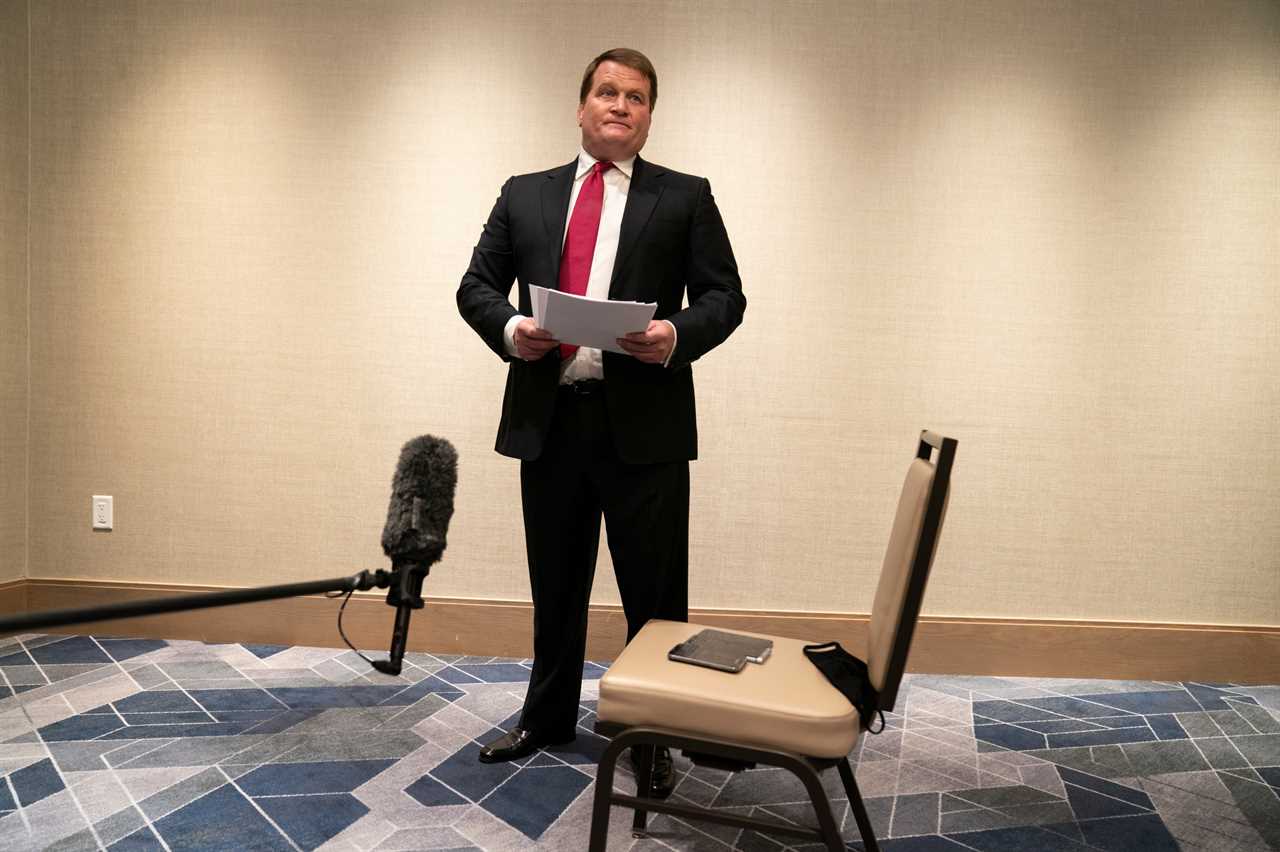
Bobulinski’s claims contradicted a 2019 campaign trail statement by Biden that “I have never discussed, with my son or my brother or with anyone else, anything having to do with their businesses. Period.”
In response to a question about whether Joe Biden had ever met with Bobulinski and shown a familiarity with the CEFC-related venture, a White House spokesperson, Andrew Bates, pointed to the campaign’s original statement that Biden has never considered going into business with family or had relatives hold stock on his behalf. Bates also pointed to a statement from Gilliar that he was “unaware of any involvement” by Joe Biden in the planned venture.
Gilliar did not respond to requests for comment for the book. Neither did lawyers for James and Hunter Biden. The White House has not disputed Bobulinski’s claim that he discussed the planned venture with Joe Biden.
Since the election, questions and confusion about the alleged emails have lingered.
In March, U.S. intelligence agencies issued a report concluding that Russian intelligence proxies worked to push anti-Biden narratives during the campaign that included “misleading or unsubstantiated allegations.” In some quarters, this created the impression that the intelligence agencies have concluded that the laptop is a fake, but the report does not state such a conclusion.
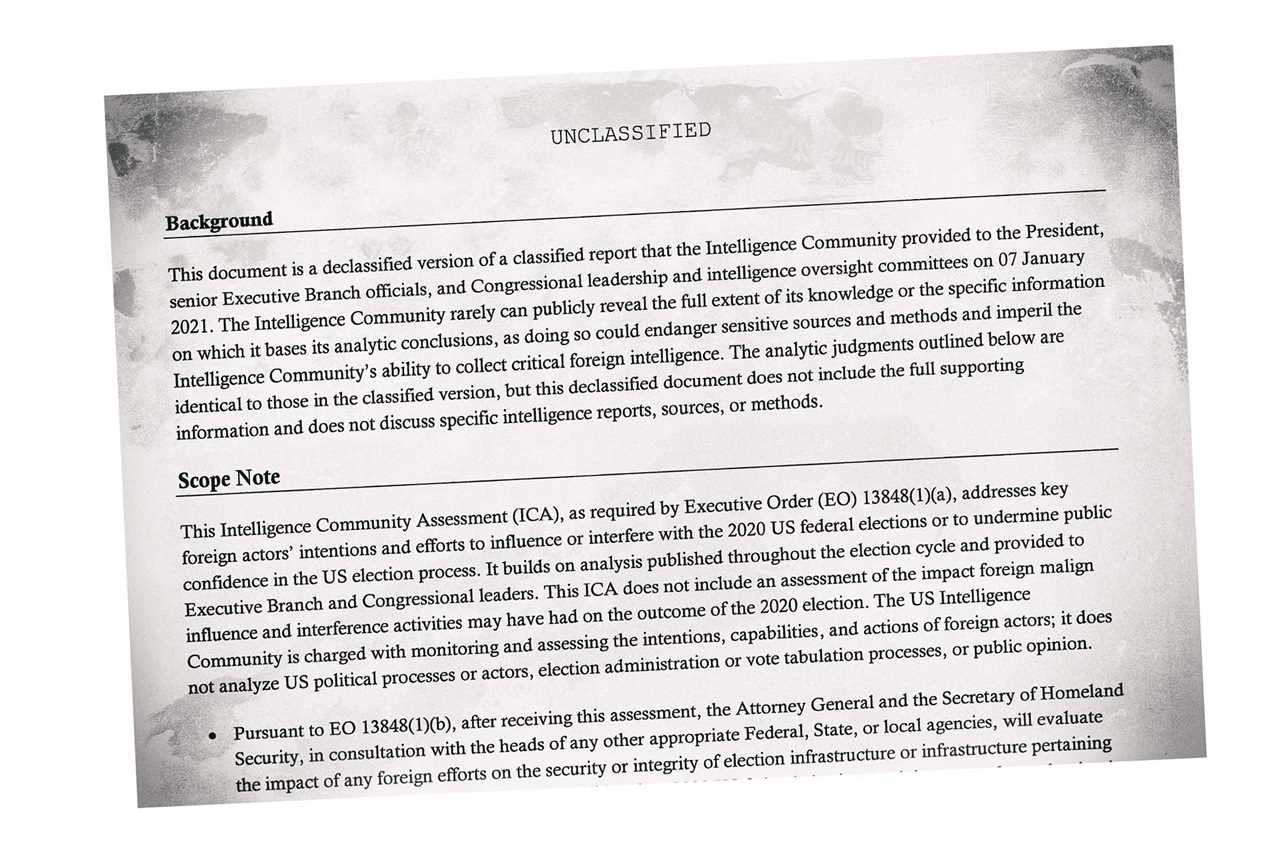
In researching the book, I spoke to a person who had had independent access to Hunter Biden’s emails. This person was not in a position to compare the leaked emails word-for-word with the originals, but they said Hunter Biden had in fact received an email containing the “10 held by H for the big guy?” language and another from a Burisma representative thanking him for the opportunity to meet Joe Biden.
I also obtained a cache of the purported laptop files from people working with the right-wing operative Steve Bannon, one of the people behind the original leak. I was able to confirm that some other parts of the material are genuine. Two people who corresponded with Hunter Biden in the months leading up to his father’s 2019 campaign launch confirmed to me the authenticity of emails in the cache. The people spoke on the condition of anonymity, citing fears of being embroiled in a global controversy.
Finally, emails in the cache matched emails released to me by the National Property Board of Sweden, a Swedish government agency, under the country’s freedom of information law. (For a time, Hunter Biden had an office inside the complex that houses the Swedish embassy.)
While at least some of the laptop material is genuine, it remains possible that fake material is mixed in.
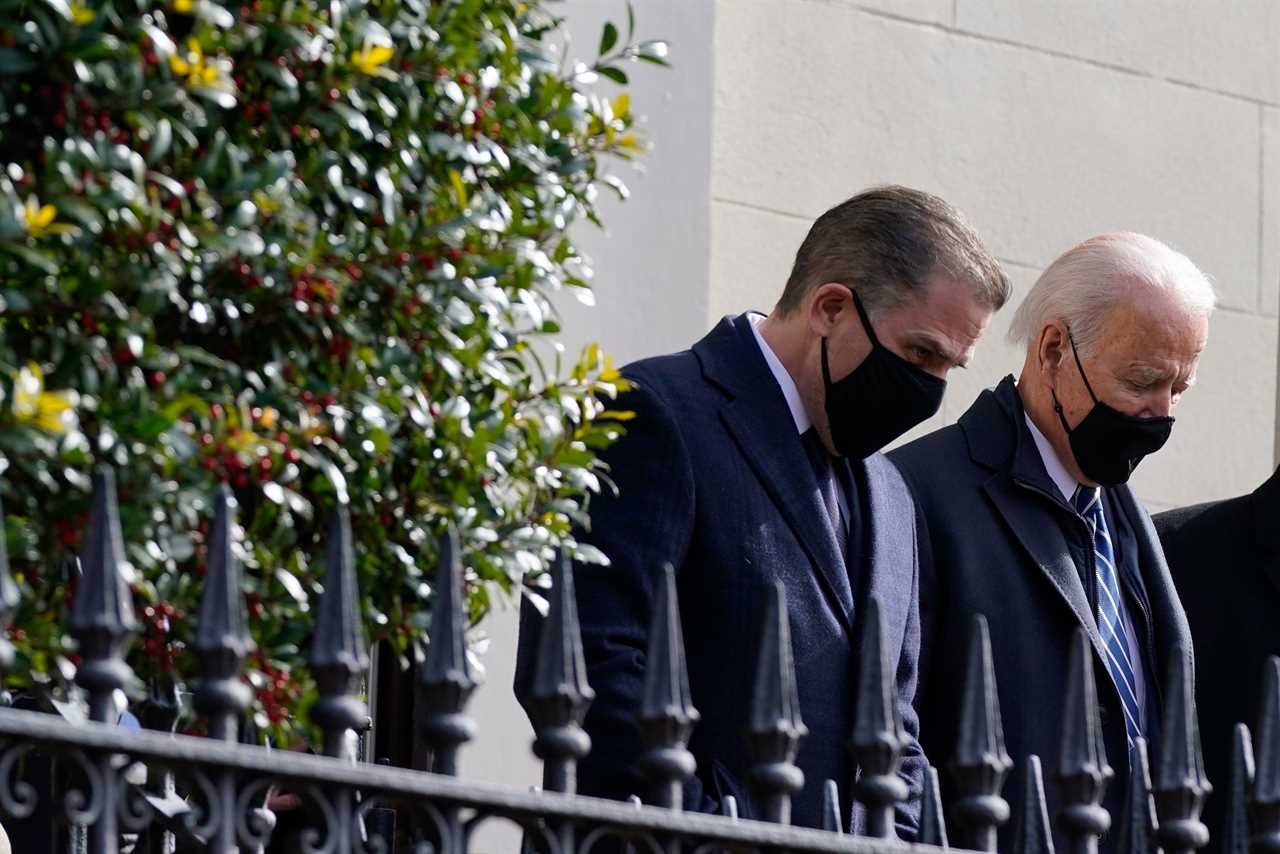
Asked whether Joe Biden had an April 2015 encounter with Pozharskyi at a dinner at the Georgetown restaurant Cafe Milano, as purported emails from the leak suggest, Bates pointed to part of an April Washington Post article that states, “The Biden campaign, after a comprehensive review, had said a meeting never took place between Joe Biden and Pozharskyi.”
It is not clear whether that language rules out any sort of encounter whatsoever, or only a formal meeting.
Was there an informal encounter at this dinner? The Washington Post article confirms that Biden stopped by the dinner in question, but casts doubt on the idea that Pozharskyi was present, despite an alleged email listing a “Vadym” on the guest list. In the article, dinner attendee Rick Leach, then-president of the non-profit World Food Program USA, is quoted at length but does not actually address whether Pozharskyi attended.
Leach told POLITICO he is unsure whether Pozharskyi was at the dinner, but that he considers it unlikely. “I don’t think so,” he said. “I don’t remember that name. I don’t remember that person at all.”
Leach said that other than the two Bidens and a Greek Orthodox Church official, he could not recall the identities of any of the dozen or so people present during the dinner. He declined to say whether he has any emails from the time that might shed light on the identities of the other attendees.
Pozharskyi did not respond to requests for comment for the book. Neither Joe Biden nor Hunter Biden have addressed on the record whether Joe Biden has ever met the Burisma representative.
An encounter would not be the only one Pozharskyi ever had with a top U.S. official. In 2017 and 2018, Trump’s then-special envoy to Ukraine, Kurt Volker, met with Pozharskyi at events sponsored by the Atlantic Council, a Washington think tank, according to the Associated Press.
But confirmation of such an encounter could renew uncomfortable scrutiny of Hunter Biden’s Burisma work and the role his connections to his powerful father have played in his business ventures.
Even as attention has shifted to Hunter Biden’s painting, these earlier episodes remain murky. Until they are fully aired out, they threaten to undermine the White House push to take on global corruption and restore public faith in the executive branch.
“Hiding the ball,” as Clark said of the White House approach to the painting venture, “is not the way to protect the public trust.”
----------------------------------------
By: Ben Schreckinger
Title: ‘Hiding the Ball’: Hunter Biden Complicates White House Anti-Corruption Push
Sourced From: www.politico.com/news/magazine/2021/10/12/hunter-biden-corruption-515583
Published Date: Tue, 12 Oct 2021 03:30:19 EST






